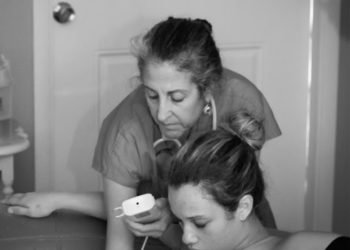You’ve probably heard of midwives primarily in the context of pregnancy and delivering babies. While that is a significant aspect of their profession, it’s essential to recognize and appreciate the extensive range of roles and responsibilities midwives carry. Join us in discovering the world of midwifery beyond baby delivery! We’ll delve into the various aspects of their job while also emphasizing the diverse skills and expertise they contribute to women’s health care.
Prenatal Care and Education:
Midwives provide prenatal care, focusing on prevention, early detection, and management of potential complications. They monitor the health of pregnant women and their developing babies, ordering appropriate tests and diagnostic exams when needed.
Midwives also offer educational resources to prepare expectant parents for labor, childbirth, and the postpartum period. They discuss topics such as nutrition, exercise, pain relief options, breastfeeding, and caring for a newborn. Providing personalized, comprehensive care is vital for the well-being of both mother and child.
Emotional Support and Counseling:
Pregnancy and childbirth can be stressful and overwhelming experiences. Midwives work closely with expectant mothers to develop open, trusting relationships, allowing them to provide critical emotional support. They ensure that the mother’s concerns and feelings are acknowledged and addressed. Midwives also offer counseling regarding any emotional or psychological issues that arise during pregnancy, childbirth, or the postpartum period, helping to create a positive, empowering experience for the mother.
Family Planning and Contraception:
One of the lesser-known aspects of midwifery is its role in family planning and contraception. Midwives are well-versed in various birth control methods and can help patients choose the most appropriate option based on their individual needs and circumstances. Moreover, midwives can provide essential information about fertility awareness, pregnancy prevention, and sexually transmitted infections. This holistic care ensures that women and families can make informed decisions about their reproductive health.
Midwife Gynecologic Care and Exams:
Midwives provide necessary primary gynecologic care to women throughout their lives. This includes performing essential examinations such as Pap smears, breast exams, and screening tests for various conditions. Midwives also diagnose and treat common gynecological issues like yeast infections, urinary tract infections, and minor reproductive system disorders. Furthermore, they administer vaccinations and provide care during menopause, supporting women’s health during each phase of their lives.
Advocacy and Education:
An essential component of midwifery is serving as an advocate for women’s health rights and acting as a resource for education on reproductive health issues. Midwives work to raise awareness about topics such as maternal and infant health disparities, sexual health, and family planning. Additionally, they often collaborate with other healthcare providers and organizations to improve access to quality care in their communities.
Comprehensive Women’s Care at Midwife360
As we’ve explored in this blog post, the roles of midwives extend far beyond delivering babies. They make a profound impact on women’s health care by offering comprehensive prenatal care, emotional support, family planning services, gynecologic care, and education. Their passion for nurturing, empowering, and advocating for women is truly inspiring.
Understanding all that midwives do is essential to appreciate the invaluable contributions they make in supporting women and families through various stages of life. So the next time you hear “midwife,” remember the vast range of skills, expertise, and compassion they bring to their profession.

















